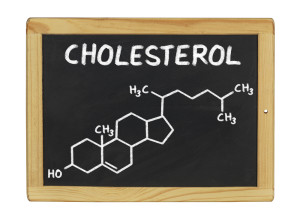Written by Jessica Patella, ND. Just 150 grams (1 ½ cup) of frozen bilberries, eaten 3times per week, significantly improved cholesterol, triglyceride, glucose and albumin in participating subjects.
 Heart disease is the leading cause of death for both men and women in the United States 1. Those with high cholesterol have twice the risk for heart disease as those with normal levels 2. Recent research has found that eating billberries can improve cholesterol levels significantly 3.
Heart disease is the leading cause of death for both men and women in the United States 1. Those with high cholesterol have twice the risk for heart disease as those with normal levels 2. Recent research has found that eating billberries can improve cholesterol levels significantly 3.
Currently, bilberries (Vaccinium myrtillus L) are not commercially available. There are some places you can find them in the wild. The closest alternative are the cultivated species of the plant, blueberries (Vaccinium corymbosum L). The consumption of both bilberries and blueberries have been shown to prevent cardiovascular disease 4, cancer 5, diabetes 6, hypertension 7, obesity 8 and metabolic syndrome 9.
The study included 25 women (average age 47.7 years) and 11 men (average age 49.0 years), all of whom were apparently healthy. The participants were instructed to consume 150 grams of frozen bilberries (about 1.5 cups) three times per week (Monday, Wednesday and Friday) as a snack with natural yogurt for 6 weeks 3.
The following improvements were observed:
| Before Bilberries | After Bilberries | Statistical Significance |
|
|---|---|---|---|
| Total Cholesterol | 5.63 | 5.29 | P=0.017 |
| LDL Cholesterol | 3.39 | 3.14 | P=0.035 |
| Triglycerides | 1.46 | 1.06 | P=0.001 |
| Glucose | 5.54 | 5.14 | P=0.005 |
| Albumin | 47.90 | 45.60 | P=0.001 |
| HDL Cholesterol | 1.57 | 1.67 | P=0.044 |
*All above measured in (mmol/L)
These results show a significant decrease in total cholesterol, LDL or “bad” cholesterol, triglycerides, blood sugar (glucose), and albumin (a measure of protein in the blood to measure of liver or kidney disease). There was also a significant increase in HDL or “good” cholesterol.
In conclusion, wild bilberries improved blood lipid levels and blood sugar levels in men and women over a 6-week period. This was a relatively small study without blinding or a placebo group. Future research should be conducted to confirm the results and consider investigating a wider range of fruits and over a longer period of time 3.
Source: Marta Habanova, et al, “Intake of bilberries (Vaccinium myrtillus L) reduced cardiovascular disease risk factors through positive influences in lipoprotein profiles” in the November 2016 publication of Nutrition Research.
Posted February 6, 2017.
Jessica Patella, ND, is a naturopathic physician specializing in nutrition and homeopathic medicine and offers a holistic approach to health. She earned her ND from Southwest College of Naturopathic Medicine in Tempe, AZ, and is a member of the North Carolina Association of Naturopathic Physicians. Visit her website at www.awarenesswellness.com.
References:
- CDC. Heart Disease Facts. 2015; Heart Disease Fact Sheet. Available at: https://www.cdc.gov/heartdisease/facts.htm. Accessed January 24, 2017, 2017.
- CDC. High Cholesterol Facts. 2015; High Cholesterol Fact Sheet. Available at: https://www.cdc.gov/cholesterol/facts.htm. Accessed January 24, 2017, 2017.
- Habanova M, Saraiva JA, Haban M, et al. Intake of bilberries (Vaccinium myrtillus L.) reduced cardiovascular diseases risk factors through positive influences in lipoprotein profiles. 2016.
- Basu A, Rhone M, Lyons TJ. Berries: emerging impact on cardiovascular health. Nutrition reviews. 2010;68(3):168-177.
- Terry P, Terry J, Wolk A. Fruit and vegetable consumption in the prevention of cancer: an update. Journal of internal medicine. 2001;250(4):280-290.
- Granfeldt YE, Björck IM. A bilberry drink with fermented oatmeal decreases postprandial insulin demand in young healthy adults. Nutrition journal. 2011;10(1):57.
- Stoclet J-C, Chataigneau T, Ndiaye M, et al. Vascular protection by dietary polyphenols. European journal of pharmacology. 2004;500(1):299-313.
- Stull AJ, Cash KC, Johnson WD, Champagne CM, Cefalu WT. Bioactives in blueberries improve insulin sensitivity in obese, insulin-resistant men and women. The Journal of nutrition. 2010;140(10):1764-1768.
- Vendrame S, Daugherty A, Kristo AS, Riso P, Klimis-Zacas D. Wild blueberry (Vaccinium angustifolium) consumption improves inflammatory status in the obese Zucker rat model of the metabolic syndrome. The Journal of nutritional biochemistry. 2013;24(8):1508-1512.
